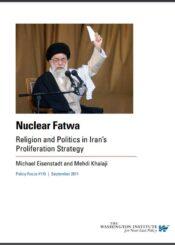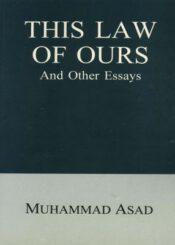Law and The Difference in Outlook and Origin
Law and The Difference in Outlook and Origin
0 Vote
248 View
By: Muhammad Taqi Misbah Yazdi As explained in the last session, the above theory is based on an array of statutory principles. The first principle is the exigency of law for society while the second principle is that the law must be divine. After these two stages comes the issue of the implementer of law. Proving this theory to Muslims who accept those principles and believe in the Islamic fundamentals is not difficult. However, in dealing with those who reject those principles and the Islamic fundamentals, or those who wish to delve into the issue in order to be able to reply to the opponents, each of the principles must be explained in more detail. Exigency of discussing law at the present stage In this age we are faced with various theories in the context of political issues, so we must engage in theoretical discussions on government and politics so as to present the Islamic view vis-à-vis opposing theories, considering the relentless efforts of the Global Arrogance in besmirching the Islamic viewpoint on government. In addition, we are in a revolutionary period and living at a time when an Islamic system has been established and therefore, for elucidating viewpoints at Islamic, we should use logical and scientific means. In view of the demand of rule of law by the country’s honorable officials, the people must pay attention to the issue of law and its foundations, credibility and extent, and know why and to what extent we should abide by the law. These factors augment the necessity of addressing political and governmental questions in Islam. As such, the discussion must be carried out in a scientific and academic manner. Two contradictory views determining domain of laws Today’s human society is dealing with a variety and multitude of laws. If we take a look at books written about law fifty years ago, we will realize that the increase in volume is approximately geometrical in progression. Compared to the laws existing today, the number of laws existing five decades ago was insignificant. In addition, especially because of office circulars, executive orders and regulations, the number of laws increases everyday. Whenever society feels the need for new rules the concerned authorities try their best to make these laws and thereafter, implement them. Yet, in academic circles around the world this question is raised in a very serious fashion: Should only the least necessary social laws be codified, or, should social laws be all-encompassing and regulate all facets of human affairs? This question is addressed in political philosophy and legal philosophy at the highest level of academic forums. In this connection, two conflicting approaches face each other. On one hand, a group is of the opinion that people must be free in their activities and that the legislative organ should make minimum laws and not limit the activities of people beyond what is necessary. This is liberalism, which believes that every individual in society be allowed to behave the way he or she likes. Regulations must be formulated in order to restrain people’s activities only as much as is necessary and not beyond it. The legislative organ and the government should not regularly make laws and persistently interfere in the activities and lives of people. Opposed to this is the holistic outlook (holism) which holds that everything must be encompassed by law and all human actions—social, political, economic, etc.—must have specific and definite laws. Also, the government must strive to implement these laws. The above question is not a simple and casual question. In fact, it is a very delicate one, dealing with the scope and limit of law—the kind of laws that should be made, and quantitatively, the extent and domain of the lives of people they should encompass. Status of law in democratic systems The question about the extent and domain of laws is related to different schools of thought on the philosophy of legislation which offer different theories and views on the right of legislation and the determination of its criteria. A well known perspective maintains that those who have the right of legislation for the people are the ones who are chosen by the people themselves to do so. Thus, in reality, the right of legislation belongs to the people themselves and they are the ones who enact laws for themselves. The political system which is formed on the basis of this perspective is called “democratic”. After the acceptance of the democratic system this question is posed: Would whatever the majority of the elected representatives of the people—i.e. 50% plus one—like and agree upon be regarded a binding law? Are there also other rulings needed for legislation, and should certain laws that specify the extent of authority of the representatives in legislation be enacted earlier? The reply is that the constitution determines the scope and right of legislation, rules over statutory laws and judges the extent and scope of legislation. At this point, another question is raised and that is: various countries have their respective constitutions which are more or less subject to change. Sometimes, with the change of political system or regime, the constitution is also changed. There are also times when the constituent assembly is convened and amendments to the constitution are made. In any case, in view of the changes to be made in the constitution, is there any institution or entity above the constitution which specifies the scope of the constitution? That which is above the constitution is the institution of human rights—also called the natural law or the basic rights of men—which rules over the constitution and determines its scope. Members of the constitutional committee cannot reflect whatever ‘they like’ in the constitution, let alone make common laws. Basis of credibility of human rights Again, another question is posed: Who enacts the law which is above and determines the extent and scope of the constitution, and on the basis of which changes can be made in the constitution? Who has codified the “human rights” reflected in the Universal Declaration of Human Rights or mentioned in the books of legal philosophy, and from where does their credibility emanate? The answer given is that according to the international customs, their credibility emanates from the signatures of those who approved the Declaration, and it is binding because it is ratified by all states of the world. It can be asked: Is this Declaration binding for a state that has not approved it? If it is not binding, it follows that no one has the right to condemn those, who have not approved the Declaration and thereby, refuse to act upon it, for “not observing human rights”. Again, the answer will be given that the rights and laws described in the Declaration are not enacted laws that become binding after their enactment and approval. They are rather real laws which can be discerned by human reason and are binding whether people accept them or not. Of course, at the present time there are numerous people who hold such an opinion, regarding human rights a real and extrinsic fact. An absolute majority of legal and political philosophers believe that the credibility of these laws, conventions, declarations, and charters emanates from the approval of the states’ representatives, and not because they are an extrinsic reality. Finally, this serious objection is raised: What justification do all states have to accept these laws and what is the proof for non-signatories? The root of this objection and question cannot be deracinated in any way. For this reason, this question is addressed in legal philosophy: What is the source of credibility of laws? However, for us who have faith in the religion of Islam, God and the Qur’an, there is a simple answer. Once we say that the laws have been codified based on the decree of God, the case is closed and there are no more questions. But those who refuse to tread this path and want to describe everything through a contract will finally end up in an impasse because they regard human rights as the source of credibility of every law and the reason behind also needs to be investigated. In addition, why is the Universal Declaration of Human Rights codified in about 30 articles only, and not more or less than that? These are questions posed to the crème of legal philosophers and a convincing answer is yet to be offered by them. Once we say that we are law-abiders, we ought to know where the credibility of law emanates from, and why and to what extent we have to abide by the law. Today, there are many related discussions in speeches, periodicals and newspapers. Some of our educated, especially the university-educated and those who are engaged in studying and teaching social sciences and humanities, particularly the authorities in legal philosophy and political philosophy are encountering these questions. Thus, in order to improve the cultural level of our society, we have to state the results of the academic inquiries in a simple and concise manner. If we want to deal with these issues meticulously and elaborately, we have to refer to at least four fields in social sciences or four branches of philosophy, viz. philosophical sociology, legal philosophy, moral philosophy, and political philosophy. And if we want to pursue it, we need to study other philosophies, and of course, epistemology, which is considered the mother of philosophy. It is very useful to point out the achievements in these fields of social science and the relationship existing between them for the educated class and wary people who have been trained in the lap of the Islamic Revolution and its culture. Real, intrinsic laws and status of man’s freewill It is worth mentioning that the term “law” is a term with two basic meanings. The first meaning of the term is applicable in the experimental sciences, exact sciences and mathematics. In these sciences, law refers to the actual relationship existing among phenomena. For example, the laws of phenomena specify the metallic point of metal, when water will turn into vapor, at what temperature it will evaporate or under what conditions it will turn into ice. So, freezing point or boiling point exists as a law of nature, and man needs to be acquainted with these laws of chemistry, physics and other experimental sciences. Evidently, these laws are fixed, persistent and numerous. With the advancement of human knowledge, more laws will be discovered, and with every new discovery in every science, hundreds of questions and answers will be raised. Proportionate to the number of these questions, new laws will be discovered in order to answer them. For this reason, the number of questions increases everyday and mankind is in pursuit of discovering more laws to answer them. In other words, in the universe we are in the domain of a set of innumerable laws: ranging from laws related to the elements, chemical compositions and living creatures to space laws and others, whose existence is yet to be discovered by scientists. At this point, this question comes to the fore: If, in this universe, we are confined in this narrow and constricted sphere of innumerable laws, what then is the role of our freewill and volition? This question is treated seriously, and as such, in philosophical anthropology it is asked: What is the truth of man? Is he totally determined or free? Or, does he have conditional and limited freedom? Assuming that his freedom is limited and conditional, what is its extent? Similarly, today, the question of predestination and freewill or tafwid[9][96] and the like are still seriously discussed among philosophers in the world as before. Among them are existentialists who believe that man has unlimited freedom and may do whatever he likes. As Jean-Paul Sartre[10][97] used to say, “If I wish, the Vietnam War will come to an end!” That is, man is such a powerful creature that he can put a stop to a bloody war that has taken millions of human lives. Of course, it is an exaggerated claim but the point is that such an outlook which upholds human freewill and unlimited power exists. Opposed to the existentialists are those who consider human freewill mere illusion, believing that man subsists within the framework of a set of fatalistic laws though he imagines that he has freewill. The last but not least, are the religious beliefs which can be located in between the above- mentioned two, maintaining that man has freewill limited by various laws governing the universe. That is, if we try to draw circles of the set of laws governing the universe, human freewill can be exercised within those circles and not beyond that. On saying that, we are intrinsically subject to a set of laws, this question spontaneously arises: Do we have the power to break those laws and defy them? Can we make nature subservient to us and limit the extent of laws and live in such a way that the laws of nature do not govern us? The answer is that such an imagination is sheer fancy because manipulation of nature necessitates the discovery of another law of nature itself. For example, if we succeed in the field of medicine in controlling a disease or totally eradicating it, we have to discover another law of nature and follow it. In reality, we have not succeeded in digressing nature from its course; rather, we have discovered a law of nature and acted accordingly. Hence, it is impossible to go beyond the domain of intrinsic laws, and in order to live one needs to recognize and benefit from these laws—the same laws God has set in the universe—and to go against them is tantamount to going against man’s intrinsic servitude [‘ibadat-e takwini]. As we have said earlier, within the circles which constitute the set of intrinsic laws, we can move to a certain extent. Among the diverse scientific and intrinsic laws, there are limited spaces for man’s exercise of freewill and the power to choose by means of which he can make use of a law vis-à-vis another law. These limited spaces constitute the domain of man’s freewill. Legislative and divine laws that guarantee man’s felicity and perfection Within the limited extent of freewill and the power to choose, morally speaking, can man behave in whatever way he likes? Or, should he demonstrate a certain deal of restraint? Are there any laws in this sphere which are mandatory for man to obey? The answer is that there are also laws in that sphere but not intrinsic laws; rather, legislative and extrinsic laws, or moral laws. In the language of our predecessors who used to deal with them for thousands of years, they are laws in the realm of practical wisdom [‘aql-e ‘amali] in contrast to the real laws in the realm of theoretical wisdom [‘aql-e nazari]. That is, practical wisdom has to judge anything related to the voluntary actions of man. Undoubtedly, implementing the divine laws upon which it is within the power of man to act, will lead to the attainment of the ultimate aim and goal, viz. the aspired perfection, and deviation from which will result in man’s fall, making him baser than any animal. The Qur’an also confirms the same fate, saying: لَقَدْ خَلَقْنَا الإِنسَانَ فِي أَحْسَنِ تَقْوِيمٍ ? ثُمَّ رَدَدْنَاهُ أَسْفَلَ سَافِلِينَ ? إِلَّا الَّذِينَ آمَنُوا وَعَمِلُوا الصَّالِحَاتِ فَلَهُمْ أَجْرٌ غَيْرُ مَمْنُونٍ “We certainly created man in the best of forms; then We relegated him to the lowest of low, except those who have faith and do righteous deeds. There will be an everlasting reward for them.”[11][98] By using the innumerable talents God has endowed man with, he can attain the pinnacle of divine proximity and nearness to God. On the contrary, by opposing and rising against the divine laws, he can fall to the lowest ebb and be baser than any animal. So, to obey or defy the legislative, extrinsic and moral laws, are within the freewill of man. If a person accepts and follows these laws, he will attain spiritual and psychological loftiness, tranquility and wellbeing; otherwise, he will fall. It is like health tips and recommendations offered by medical science to us. Observance of them guarantees our wellbeing while heedlessness to them results in ailments and endangers our health and life. Now, since man is free to observe or not observe these health and medical tips, if he values his health and wants to remain alive and kicking, he has to observe them. On the other hand, if he is not concerned with his health and it does not matter to him if he gets sick, he should not pay attention to these tips. So, the truth of the matter is that wellbeing is impossible without observance of health tips. Of course, such an affair is not fatalistic in nature because observance or non-observance of health and medical tips is within the control of man. Of his own freewill, he may observe these tips and thus remain healthy, or not observe them and expose himself to danger and sickness and even death. That which is said about the body is also true about the spirit and soul. Just as the physical body has wellbeing and sickness, so does the soul. The observance of certain spiritual values and laws, guarantees the perfection, tranquility and wellbeing of man’s soul; otherwise, his soul gets sick. In this regard, God says: فِي قُلُوبِهِم مَرَضٌ فَزَادَهُمُ اللّهُ مَرَضاً... “There is a sickness in their hearts; then Allah increases their sickness...”[12][99] Man, who is always on the verge of falling, sometimes moves so quickly that he loses control of himself, and gets relegated to the lowest of low and plunges into perdition. On the contrary, if he wants to remain sound he has to move carefully and with such self-restraint that he can make a stop whenever he smells danger. There are also real orders, and by obeying the divine laws, man can attain spiritual wellbeing and eternal bliss. Of course, man is free and autonomous; he may not want to attain bliss but want hell instead. No one can stop him. Intrinsic freedom has endowed him the right to choose. However, if he wants to attain felicity and nearness to God, he has to obey the commands of God. He should not follow his own desires, because following one’s carnal desires leads to misguidance and deviation from the truth: أَفَرَأَيْتَ مَنِ اتَّخَذَ إِل?هَهُ هَوَاهُ وَأَضَلَّهُ اللَّهُ عَلَى? عِلْمٍ وَخَتَمَ عَلَى? سَمْعِهِ وَقَلْبِهِ وَجَعَلَ عَلَى? بَصَرِهِ غِشَاوَةً فَمَن يَهْدِيهِ مِن بَعْدِ اللَّهِ أَفَلاَ تَذَكَّرُونَ “Have you seen him who has taken his desire to be his god and whom Allah has led astray knowingly, and set a seal upon his hearing and his heart, and drawn a blind on his sight? So who will guide him after Allah? Will you not then take admonition?”[13][100] Whoever is subservient to his carnal desires and dictates of the heart becomes deaf and blind and cannot discern the truth and reality. Even if he has acquired much learning, a veil will cover his eyes and he will not see the truth. In this context, the story of Bal‘am ibn Ba‘ur[14][101] is an instructive moral lesson for us all. Notwithstanding the gnostic station he acquired and being the most learned of his time, he experienced a fall and a fate about which God said: وَاتْلُ عَلَيْهِمْ نَبَأَ الَّذِيَ آتَيْنَاهُ آيَاتِنَا فَانسَلَخَ مِنْهَا فَأَتْبَعَهُ الشَّيْطَانُ فَكَانَ مِنَ الْغَاوِينَ ? ... فَمَثَلُهُ كَمَثَلِ الْكَلْبِ إِن تَحْمِلْ عَلَيْهِ يَلْهَثْ أَوْ تَتْرُكْهُ يَلْهَث... “Relate to them an account of him to whom We gave Our signs, but he cast them off. Thereupon Satan pursued him, and he became one of the perverse… So his parable is that of a dog: if you make for it, it lolls out its tongue, and if you let it alone, it lolls out its tongue...”[15][102] In light of the freedom that God has given man, he can experience fall to such an extent. However, if man wants to be blissful, he should observe an array of lows. The divine set of laws cannot be confined to a single domain; rather, they can be divided into different domains and types. As such, we are in need of some types of law in our lives. Difference between legal and moral laws That which is known as “law” to us refers to legal laws. The said laws are a set of rules enacted by a credible authority, and the so-called executive power (the government or cabinet) guarantees their implementation. In case of necessity, it imposes these laws upon the people by resorting to the use of naked force to prevent any violation. Legal laws in a general sense also include penal laws. In this context, if a person says that the duty of the government is only to recommend the law to the people—to urge them not to steal and violate others’ sanctities—, but it cannot punish the violators on the pretext that doing so is contrary to the freedom of man, certainly none will accept his argument. To say that “Since man is free, if he opposes legal laws no one should punish him” means that the existence or non-existence of legal laws means the same. This is why the raison d’être of legal laws is that there should be a guarantor of their implementation. This is their fundamental difference with moral laws besides other differences. In ethics, for example, it is said: “Keep your pledge and do not breach it.” This is a moral injunction. Now, if a person breaches a trust, he will neither be punished nor imprisoned for committing such an immoral act. But for violating a legal law he will be apprehended and imprisoned. In the case of penal laws, a specific punishment shall be given to him for fraud. There will be a police force to deal with the violators and forcefully implement the laws as far as they are concerned. The use of force is a requirement of legal laws, the absence of which renders the existence of these laws meaningless. Moral laws, however, are not in need of naked force unless they acquire legal dimension. In religion there is undoubtedly a set of divine laws pertaining to man’s relationship with God, such as the rulings on ritual prayer, fasting, Hajj, and the like. Such ordinances are mentioned only in religions. Here, the question is: Can religion also have legal laws, or should it only elucidate the relationship between man and God? This is the skeptical question which is widely talked about in universities and periodicals, nowadays. All of us, whether the university students who are directly confronted with this question or their parents and relatives, should pay heed to this kind of skepticism, because these questions will finally find their way into other strata of society through the educated class and exert influence on our public culture. One day these young students will take the place of their parents, and as influential forces, they will constitute the main sectors of society. Now, if the cultural orientation of this great sector is changed, after one generation the culture of our society will totally change. So, we should be vigilant; we should be aware about the current cultural orientation that is taking form in our society. Difference between Islamic and liberal approach One of the issues discussed nowadays is that only minimum effort must be made in the enactment of law. This is the liberal approach which believes that the legislature is not supposed to interfere in the life and affairs of people because the less the interference, the more society will progress. The above approach has a sociological underpinning based on one of the two viewpoints discussed in sociology. The first viewpoint maintains that laws must be comprehensive and encompass all spheres of human life and that freedom must be at minimum level. The second viewpoint propounds that the individual should enjoy maximum freedom and social laws must be at minimum level in order to limit their infringement on man’s freedom. That which is prevalent in Western society today is exactly this individual-oriented approach from which liberalism has emanated which holds that laws should be at the minimum level while people enjoy maximum freedom and do whatever they like. Before stating the Islamic viewpoint, it is worth mentioning that the issue of maximum or minimum scope of law has something to do with some fields of social sciences such as philosophical sociology (individual-oriented or society-oriented), moral philosophy (the criterion of moral values, morality and its values above law or determined by law), legal philosophy, and political philosophy. According to Islam, all aspects of human life are connected to their ultimate destiny. That is, any effort exerted in this life will affect our eternal bliss or perdition. The Islamic perspective is that “This world is the sowing field for the hereafter.” In other words, whatever man sows in this world will be reaped in the hereafter and will either lead to his success, or wretchedness and damnation. If we take this perspective as authentic, is there anything in the life of man which is not in need of law? Here, law has to show the way, method and approach that will enable man to reach his goal. That is, if society yearns for security, no one should have the right to encroach upon the property and dignity of people; otherwise, his property and dignity will also be assaulted. It should not be that: You take away Muslim property, but when they take yours, Raise a hue and cry, “This is not a Muslim practice!” Man is selfishly profit-oriented by nature. He leaves no stone unturned by hook or by crook to gain profit, but once his interests are threatened, he seeks refuge in law. So, in order to remove contradictions and conflicts and foster cooperation and security in society there should be law that deters us from oppressing and encroaching upon others, defines the rights of everyone, specifies the bounds of justice and oppression on the basis of which people know which acts are considered just and iniquitous. Otherwise, all rights will be violated by all, and as a result, neither security nor tranquility, peace of mind nor otherworldly felicity will remain, and no one will achieve his innate goals. In the Islamic perspective, therefore, all our movements and pauses, whether in individual and family life or social life and even international relations, follow an order and rules. Islam has a legal code for all aspects of human life, legal and social laws included. Islam even has a law regarding man’s imagination and thought, saying that a person has no right to keep in his heart whatever he or she likes, entertain any fancy in his or her mind, and think ill of others—“Indeed some suspicions are sins.”[16][103] Just as non-observance of health tips leads to sickness, endangering the wellbeing of individuals and society, society will also be destroyed for not observing Islamic rules. What has been said is that no aspect of human life is beyond the scope of Islamic laws and that man should control even his heart and mind but it does not mean obstruction of man’s freedom. It rather means showing him the correct use of freedom and lighting a torch along his path so that he can rightfully enjoy his freedom. Of course, as long as they are not related to man’s social life, these laws do not stipulate penalty in this world but only chastisement in the hereafter. However, if there is a violation of social rules and laws, and social interests are trampled upon, penalty in this world shall be taken into account. In reality, penalty in this world is a requisite of all legal laws and it is not confined to the legal laws of Islam only. Every legal system that wants to enact laws for the maintenance of order and social security has no option but to consider a set of penalties for violators and offenders. This is because social life can not be established without laws that restrict individual freedom and liberty. As social relations increase and expand, the need for social laws and their guaranteed implementation will also increase. Notes: [17][96] Tafwid: the belief that after creating all beings, God has left them to administer their own affairs and follow their own wills. In other words, it is the upholding of freewill [ikhtiyar] vis-à-vis predestination. [Trans.] Source: alhassanain.com






